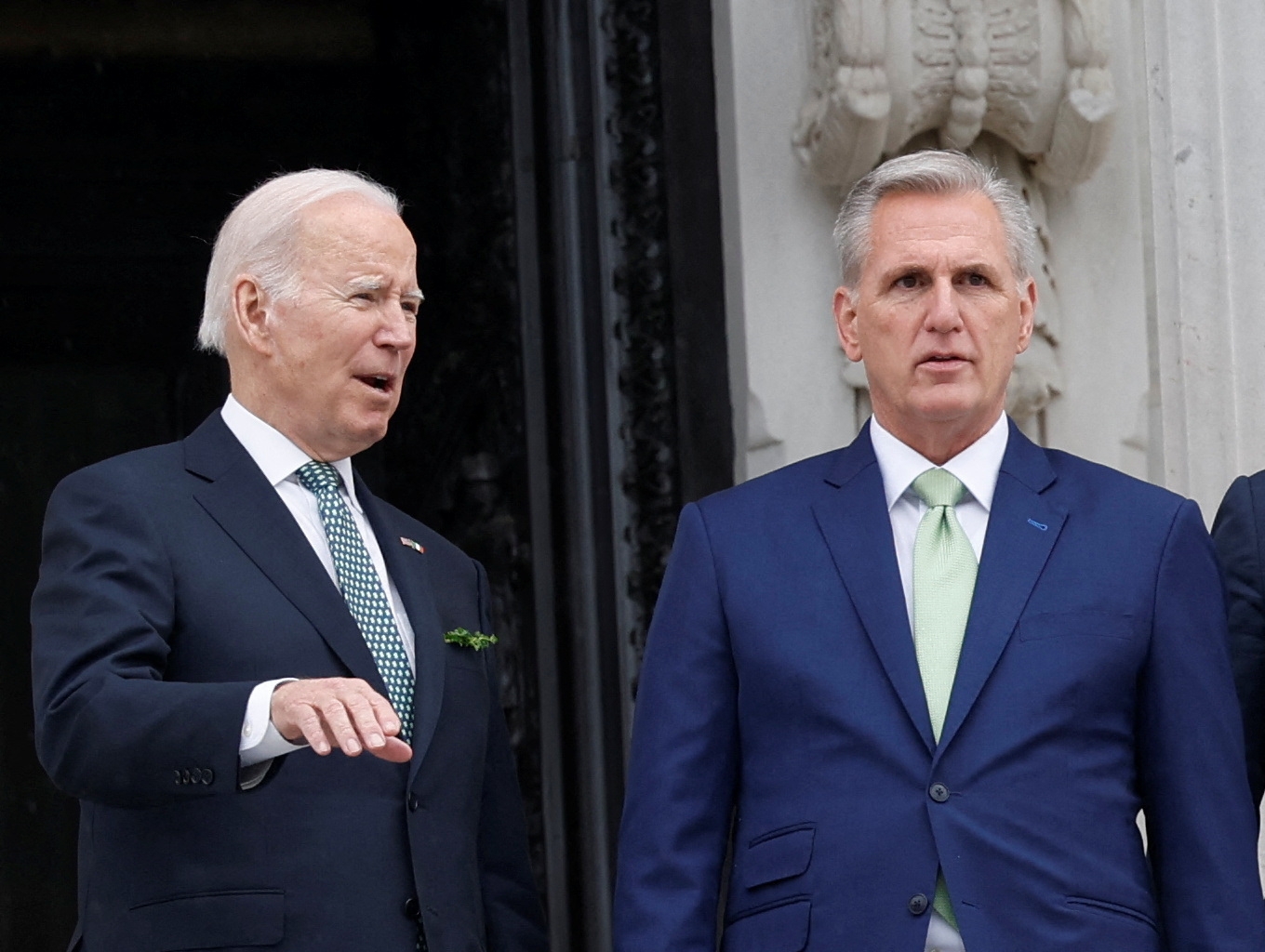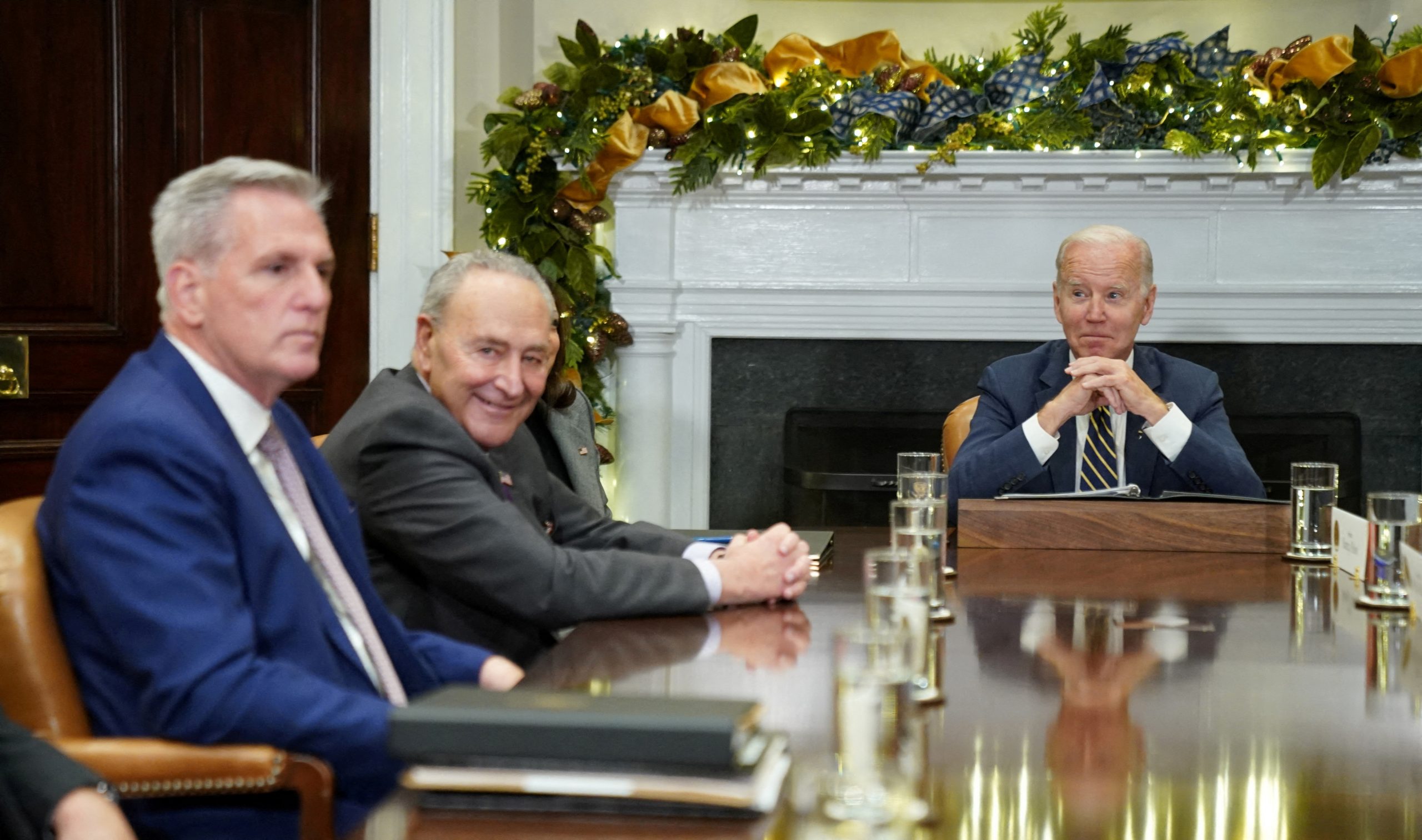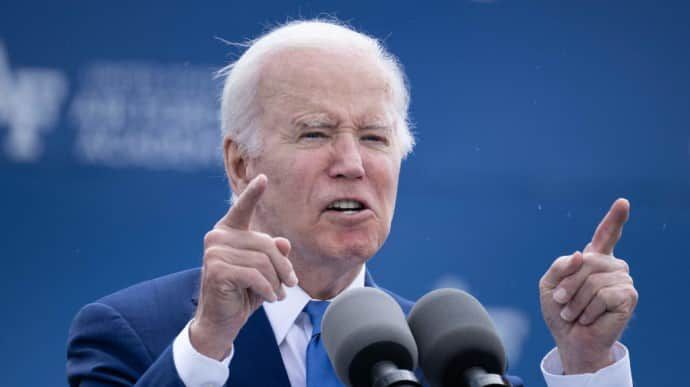The first meeting between President Biden and House Speaker Kevin McCarthy regarding the debt ceiling ended without reaching a deal, leaving both sides still far apart. However, subsequent discussions among aides have provided some hints about potential areas of compromise that could be on the table.
One of the main areas of potential agreement revolves around imposing limits on federal spending in the coming years. Additionally, there seems to be some Democratic openness to the Republican proposal to “claw back” unspent funds from COVID relief bills. These measures could serve as crucial starting points for finding common ground between the two parties.
Another intriguing possibility that has emerged is the streamlining of permits for new energy development projects. Sources familiar with the talks suggest that the White House sees an opportunity to make significant progress on this complex issue. However, it is important to note that the negotiations are still in the early stages and subject to change. Nevertheless, the fact that both sides are actively engaged in discussions has generated a sense of cautious optimism among observers and the markets before the leaders gather again next week.
Originally scheduled for today, the meeting between the leaders has been postponed to allow for more negotiation time. Speaker McCarthy noted that Friday was not the right moment to bring the leaders back together, emphasizing the need for significant progress given the looming possibility of a default.
Two main areas of potential agreement have emerged as the sides analyze the Republican debt ceiling proposal and Biden’s priorities. One area is the establishment of a cap on federal spending, while the other involves reclaiming unspent funds from COVID relief bills. Estimates suggest that approximately $50-$70 billion in funds appropriated by Congress during the pandemic remains unused. McCarthy has emphasized the need for cuts beyond this initial amount.

President Biden has expressed willingness to discuss this issue, stating that it is on the table in separate talks independent of the debt-limit discussions. He acknowledged the need for a thorough examination of the matter.
Federal spending levels represent another area where a middle ground may be possible. While there are still disagreements on specific areas for cuts, experts point out that McCarthy’s bill could result in a net reduction of deficits by $4.8 trillion over 10 years, while Biden’s budget proposes around $3 trillion in deficit reduction. Finding common ground on spending reductions remains a challenge but is considered solvable.
Amidst the negotiations, the question of energy permitting reform has also arisen. Streamlining the process for energy producers to meet immediate needs and foster renewable energy sources has gained attention. Sources indicate that permitting reform remains on the table, as the White House seeks a bipartisan deal and recognizes the opportunity for progress in this area.
However, two key Senators, Joe Manchin and John Barrasso, signaled their intention to address energy permitting reform separately. They held a Senate hearing to restart their efforts and promised a bipartisan bill later this summer. The length of time it takes to initiate energy projects has long been a concern, and both sides recognize the urgency of expediting the process.
While progress is being made, there are still red lines that could potentially hinder a deal. The White House is likely to reject elements of McCarthy’s bill that aim to roll back Biden’s legislative achievements, particularly proposed cuts to green tax credits designed to combat climate change. Additionally, Republican proposals to impose new work requirements on low-income Americans participating in federal programs and reverse $80 billion in funding for the Internal Revenue Service are unlikely to gain Democratic support.
Despite the remaining hurdles, there is growing optimism that leaders in Washington are beginning to contemplate a potential deal after months of limited communication. Energy issues, in particular, have garnered attention, with business leaders urging for permitting reform to be prioritized.
Time is running short, but the pivotal nature of this moment offers a glimmer of hope for progress. However, with the clock ticking, there is a sense of urgency to reach a resolution. The push for energy issues, in particular, presents a unique opportunity for both parties to find common ground and achieve tangible results. The stakes are high, as the country grapples with increasing demands for clean energy infrastructure and the need to expedite economic recovery. Leaders across the political spectrum are under pressure to deliver, as the business community and the American people expect action.
While there are still significant hurdles to overcome and clear differences in priorities, the fact that negotiations are actively underway and leaders are engaging in discussions is a positive sign. The potential compromises on federal spending limits, the clawback of unspent funds, and energy permitting reform offer glimpses of a potential deal that could address the pressing issue of the debt ceiling.
As the talks progress, it remains essential for all parties involved to keep the lines of communication open, maintain a spirit of cooperation, and prioritize the best interests of the American people. The coming weeks will prove critical in determining whether these initial signs of progress can evolve into a comprehensive and bipartisan agreement.
In the end, the resolution of the debt ceiling issue will not only impact the immediate financial stability of the country but also set a precedent for future negotiations and bipartisan cooperation. The ability to find common ground on such a contentious issue will demonstrate the resilience of American democracy and its capacity to navigate complex challenges. The nation awaits the outcome of these negotiations with bated breath, hoping for a solution that ensures economic stability, upholds the integrity of the financial system, and paves the way for a prosperous future.
©traders-news.online










